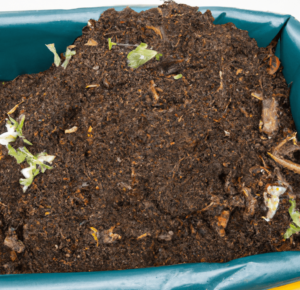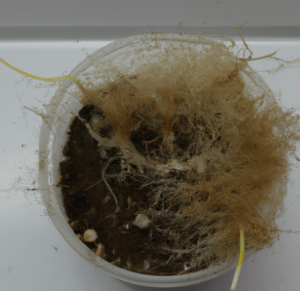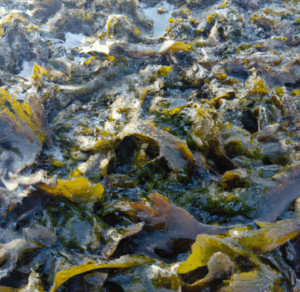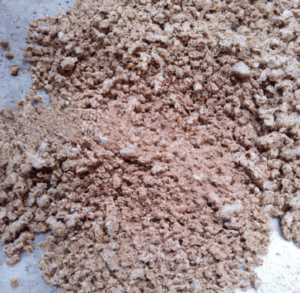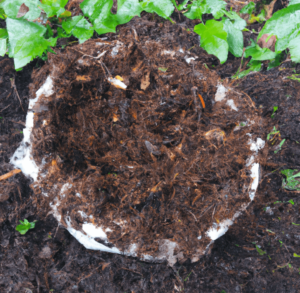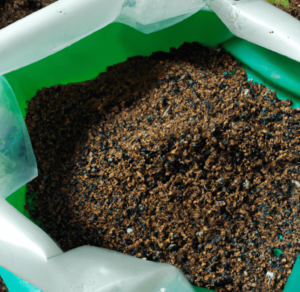Fertilizing is an essential part of farming and gardening that boosts crop yields and encourages healthy plant growth. Finding the proper fertilizer to meet your plants’ needs can be difficult, though. One of the most well-liked types of organic fertilizers is fish emulsion, which has been used for years by both farmers and gardeners. We’re diving into the benefits of using fish emulsion as a fertilizer in this article.
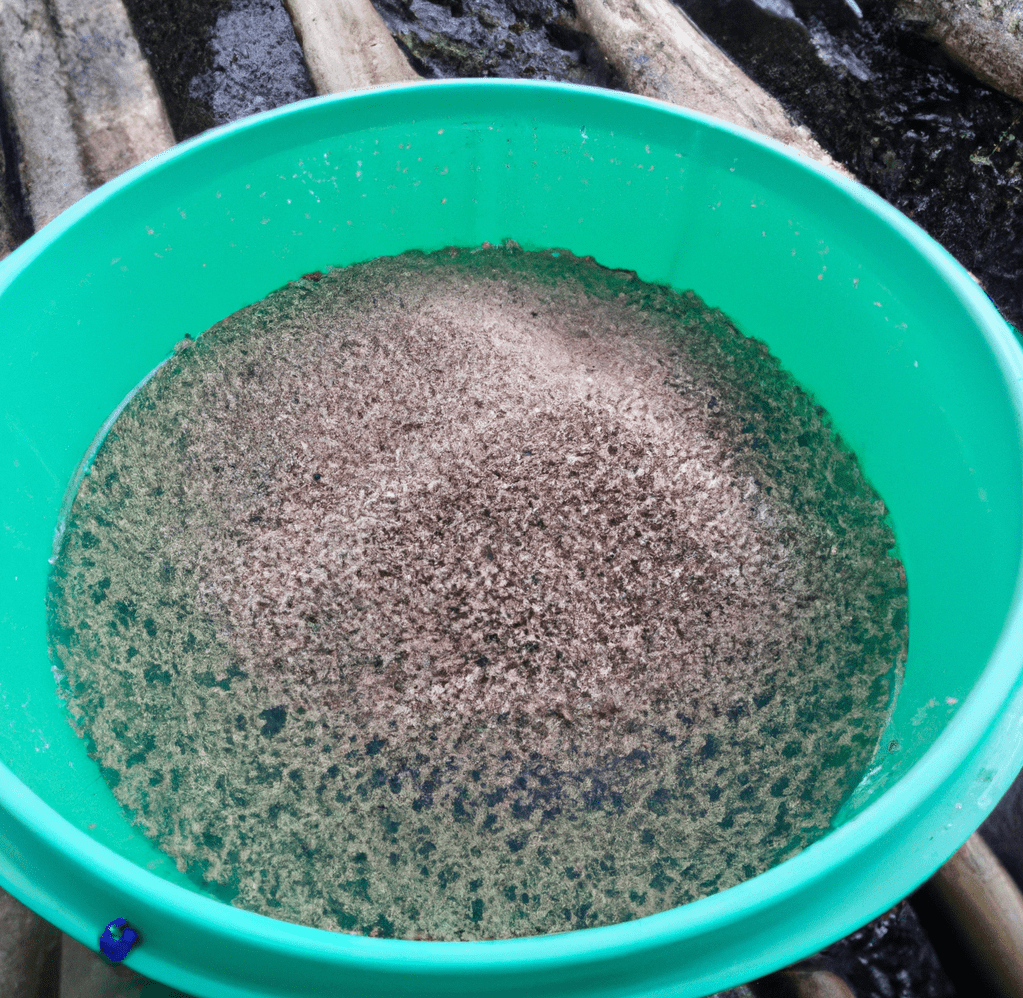
Nutritional Value of Fish Emulsion
A highly concentrated solution of whole fish or fish parts is used to create a fish emulsion, a liquid fertilizer. This organic fertilizer is frequently used in farming to feed plants with vital nutrients and strengthen the soil.
The benefits of using fish emulsion as a fertilizer include that it’s a great supply of potassium, phosphate, and nitrogen, which are essential minerals for plant development. Additionally, it has vitamins and trace minerals that promote the general well-being and vigor of plants.
Because it may quickly restore the balance and raise the fertility of the soil, fish emulsion is especially helpful for soil that is lacking in essential nutrients.
High Levels of Nitrogen, Phosphorus, and Potassium
To develop and thrive, plants need specific amounts of nutrients, such as nitrogen, phosphorus, and potassium. Commonly referred to as the “NPK” of plant nutrition, these three elements are included in a variety of fertilizer solutions in both solid and liquid forms.
The amount of each nutrient delivered to the soil depends on the NPK levels in the fertilizer. Because they aid in photosynthesis, the formation of roots, and general plant growth, high quantities of nitrogen, phosphorus, and potassium can be very beneficial to the growth and health of plants.
The benefits of using fish emulsion as a fertilizer are that it’s a liquid fertilizer that can be quickly and easily absorbed by plant roots, and it’s a quick and practical means to provide NPK to plants. It’s easier to regulate the amount of fertilizer applied, so you can also be more exact in their application.
It’s crucial to remember, though, that if NPK levels are not properly controlled, they can potentially be detrimental to the soil. The condition of the soil may deteriorate and soil erosion may result from an excess of these nutrients. It’s advised to use fertilizer sparingly and to routinely test the soil to make sure that it has the right amounts of NPK for your plants.
Trace Elements and Micronutrients
In addition to the major macronutrients like nitrogen, phosphorous, and potassium, plants also need trace elements and micronutrients in order to grow and survive. Even though these elements are required in much smaller amounts, they are nevertheless crucial for the healthy growth of plants. Some of the benefits of using fish emulsion as a fertilizer are that it’s rich in these trace elements and micronutrients.
The availability of these nutrients to plants and the pH of the soil can both be impacted by the type of fertilizer used. Selecting a fertilizer that is specially prepared for the types of plants being cultivated can help to guarantee that plants receive the right mix of nutrients.
The availability of trace elements and micronutrients to plants can also be influenced by the soil. The solubility and availability of these components can be impacted by the soil’s mineral composition as well as pH. The results of a soil test can be used to assess the soil’s nutrient content and determine whether extra fertilizer is required.
Trace elements and micronutrients are vital for the growth and development of plants, but they also have a number of other advantages. Some trace elements, for instance, can assist increase a plant’s resistance to disease and stress, while others can boost the flavor and nutritional value of fruits and vegetables.
Comparison to Other Organic Fertilizers
For growing plants, organic fertilizers made from organic substances like compost or bone meal have a lot of benefits. Chemical fertilizers can be harsh and even possibly hazardous to the environment, but they do contain a variety of nutrients that plants need to grow.
The benefits of using fish emulsion as a fertilizer, on the other hand, give plants the same vital nutrients but in a softer, slower-release form. The effect on the soil is a key distinction between chemical and organic fertilizers. Chemical fertilizers have the ability to alter the pH balance of the soil, making some plants less tolerant of it but organic fertilizers like compost enhance the structure and fertility of the soil, encouraging the growth of healthy plants.
The effect on fishing is another distinction. While organic fertilizers are less likely to harm the environment than chemical fertilizers, the latter can run off into waterways and kill aquatic life. Organic fertilizers are frequently the fertilizer of choice for vegetable plants. Fruits and vegetables may have a residue from chemical fertilizers that, if consumed, could be dangerous. On the other hand, organic fertilizers are safe for the garden as well as for the consumers of the produce.
How to Use Fish Emulsion
Now that you know about some of the benefits of using fish emulsion as a fertilizer, here’s how to use it:
- Fish emulsion is often applied directly to the soil near the base of the plants to serve as a fertilizer.
- Before planting, it can also be added to the soil and applied as a liquid to the plant’s leaves.
- Given that different types of fish and emulsions may have varied recommended application rates, it is crucial to carefully read and follow the label’s recommendations.
- It’s crucial to keep in mind that fish emulsion has a distinct fishy smell that some individuals can find unpleasant when taking it. It can also draw wildlife, including bears, raccoons, and other creatures, to the region because it is made from fish. We recommend applying the emulsion in the evening or at a time when wildlife activity is low to prevent attracting unwanted wildlife.
Dilution Ratios
Understanding the appropriate dilution ratios when using a liquid fertilizer is crucial to maximizing the benefits of using fish emulsion as a fertilizer and lowering the possibility of harming the plants and soil.
Depending on the particular product and the stage of plant growth, different dilution ratios for fish emulsion fertilizer may be advised. As a general rule, established plants typically have a dilution ratio of 5-1-1 or 5-2-1. This indicates that 5 ounces of fish emulsion fertilizer should be used per gallon of water.
The fish emulsion should not be overused as fertilizer since this might cause excessive plant growth and harm. Additionally, excessive fertilization can worsen runoff and endanger the aquatic life in neighboring streams. It’s advised to carefully follow the manufacturer’s recommendations, start with a smaller dilution ratio, and then gradually increase it as necessary to reduce these dangers.
It’s crucial to water the soil well after using the fish emulsion fertilizer, in addition to utilizing the correct dilution ratios. By doing this, it will be easier to evenly distribute nutrients throughout the soil and prevent fertilizer concentrations from harming plant roots.
Application Methods
Now that you know more about the benefits of using fish emulsion as a fertilizer, here are the different application methods you can keep in mind:
- Application to Soil: Direct application of fertilizer to the soil is a popular technique for fertilizing plants. Slow-release fertilizers work best with this technique since they can benefit plants over the long term. This approach has the advantage of requiring little maintenance and no specialized equipment.
- Water Application: By incorporating fertilizer into irrigation water, water application is a technique for fertilizing plants. This approach is practical for large-scale operations and works best with water-soluble fertilizers. This approach has the advantage of distributing fertilizer uniformly across the entire field, guaranteeing that all plants get the nutrients they need.
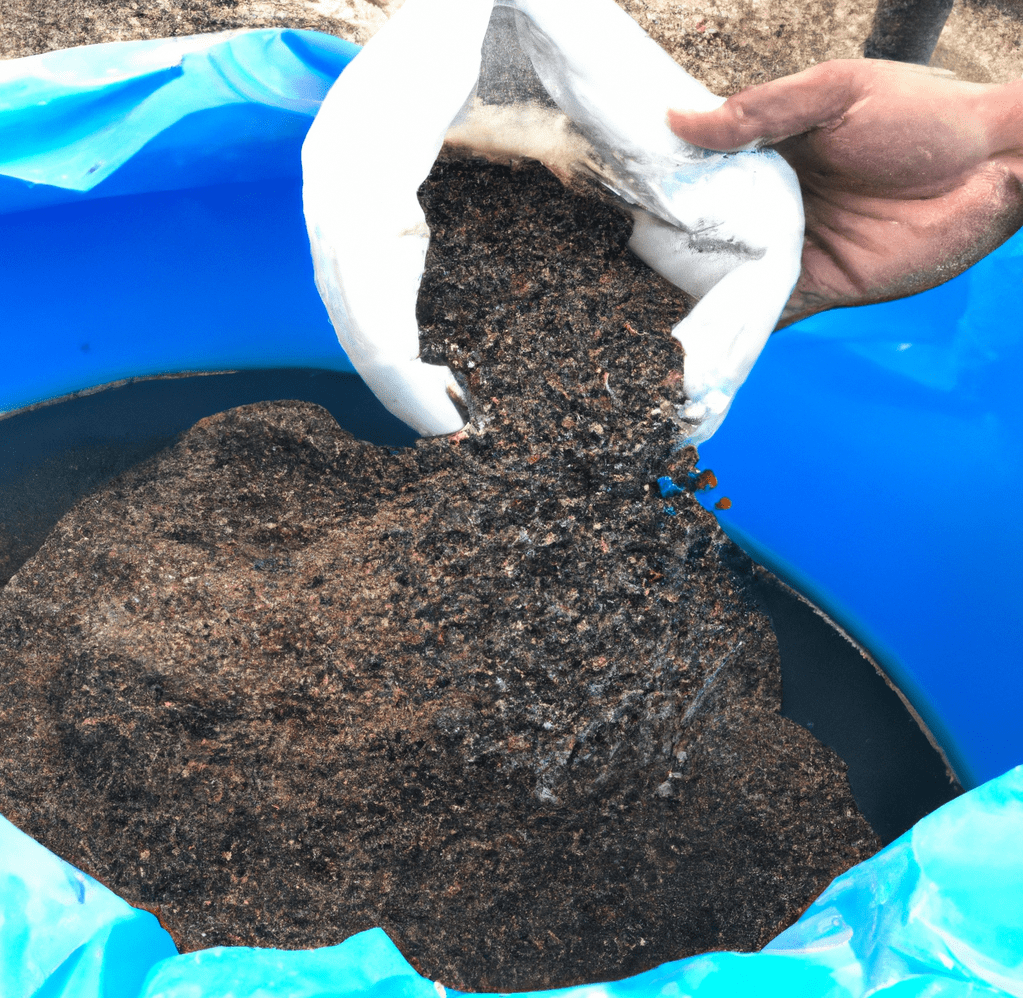
Safety Precautions
Even if you know all about the benefits of using fish emulsion as a fertilizer, there are safety precautions you need to remember:
- Globes: Always use gloves when handling plants to protect your skin from any potential allergens or irritants. Be careful handling any hazardous plants since they can be dangerous if consumed or come into contact with your skin.
- Mask: Fertilizers could include substances that are dangerous to breathe in or come into contact with your skin. Wear safety gear when applying fertilizer, like gloves and a mask, and operate in a well-ventilated location to prevent breathing fumes.
- Eye protection: Because they can readily splash or spill, liquid fertilizers, and pesticides can be very dangerous. Always wear gloves and eye protection when dealing with these liquids, and always handle and apply them according to the manufacturer’s instructions.
By following these safety precautions, you can be sure that your farming or gardening efforts have only positive effects on you and the environment.
Furthermore, it’s crucial to routinely test the soil for any potentially dangerous substances, including lead or heavy metals, and to take the proper action if necessary.
Benefits of Using Fish Emulsion
The benefits of using fish emulsion as a fertilizer include:
- Plant Development: High quantities of nitrogen, phosphorous, and potassium found in fish emulsion, a liquid fertilizer, are crucial for plant development. Stronger and more robust plants are produced as a result of these nutrients’ promotion of healthy root, stem, and leaf development.
- Soil Quality: Fish emulsion is an organic fertilizer that contributes to the improvement of soil quality. The fertilizer breaks down, releasing nutrients into the soil that plants can absorb. Additionally, fish emulsion’s organic content can enhance soil aeration, water retention, and structure.
- Low Risk of Burn: Compared to other fertilizers, fish emulsion is a gentle fertilizer that has a lower risk of root burn. Since delicate plants and seedlings are more vulnerable to damage from powerful fertilizers, this makes it a perfect option for them.
- Long-Term Benefit: Fish emulsion releases its nutrients slowly over time, unlike fast-release fertilizers, giving plants a long-term advantage. This guarantees a steady supply of nutrients for plants throughout their growing season, encouraging strong growth and development.
Improved Plant Growth and Yield
The benefits of using fish emulsion as a fertilizer include plant growth and yield:
- Supplementing nutrients: Chemical fertilizers are designed to give plants the nutrients they require for healthy growth and development. These vital components can be added to the soil to help plants grow stronger and more resilient, which may lead to higher yields.
- Increased harvest: Harvests may increase as a result of chemical fertilizers since they increase the soil’s fertility. Fertilizers can help plants grow more fruit and vegetables and increase harvests by giving them the nutrients they require.
- Crops of higher quality: You can also increase the quality of your crops by utilizing chemical fertilizers. By giving plants the nutrients they require, you can encourage them to grow more tasty and nutrient-dense fruits and vegetables, which can lead to higher-quality harvests and increased crop value.
You can experience better plant growth and output, a plentiful harvest of high-quality crops, and careful application of the proper fertilizer.
Increased Soil Health and Fertility
Just like how compost tea plays a role in plant growth, the benefits of using fish emulsion as a fertilizer include better soil health and fertility:
- NPK Ratio: Fish emulsion has significant concentrations of nitrogen, phosphate, and potassium, all of which are essential for plant growth. These nutrients are necessary for strong root growth, stem development, and leaf production. Fish emulsion, when used as fertilizer, aids in ensuring that plants have access to the nutrients they require to flourish.
- Organic Matter: Since fish emulsion is an organic fertilizer, it releases organic matter into the soil as it breaks down. This organic matter contributes to a more favorable environment for healthy plant growth by enhancing soil structure, water retention, and aeration.
- Bacteria: Fish emulsion is a source of food for soil bacteria, which are crucial for preserving the health of the soil. In the soil food chain, soil microorganisms are essential because they decompose organic materials and release nutrients that plants may absorb. Fish emulsion can be added to soil to encourage microbial activity, which can improve the health and fertility of the soil.
- Fish-based nutrients: Fish remnants, which are a rich source of nutrients such as omega-3 fatty acids, amino acids, and minerals, are used to make a fish emulsion. These nutrients can aid in enhancing the fertility and health of the soil, encouraging the growth of healthy plants.
Reduced Dependence on Synthetic Fertilizers
Crop fertilization is a crucial step in contemporary agriculture to preserve soil fertility and increase crop output. But relying too heavily on synthetic fertilizers can be bad for the environment, the water, and the soil. Farmers are using alternate sources of nutrients, such as fish emulsion liquid, to lessen the impact of synthetic fertilizers. Produced from cleaned fish waste, fish emulsion liquid offers crops a natural source of nutrients.
The soil can be harmed by synthetic fertilizers, which can be harsh and abrasive, whereas fish emulsion liquid is soft and leaves no detrimental trace. The solution includes vital nutrients for plant growth and development, including nitrogen, phosphorus, and potassium. the benefits of using fish emulsion as a fertilizer include that it’s less hazardous to the water supply in addition to being good for the soil. The risk of fish emulsion liquid contaminating groundwater is lower than that of synthetic fertilizers, which can leak into the earth and cause water contamination. Farmers that rely on groundwater for irrigation and other uses now have a safer choice.
Bottom Line: The Benefits of Using Fish Emulsion as a Fertilizer
Now that you know about the benefits of using fish emulsion as a fertilizer, the plant’s leaves should first get a foliar spray application of the liquid fertilizer. Because nutrients may be absorbed more quickly and effectively in the early phases of plant development, this approach is most successful at those times. In order to prevent burning the plant and achieve adequate coverage, it is also crucial to combine the fish emulsion with water before application.
You may optimize the beneficial effects that liquid fish emulsion can have on your plants and crops by adhering to these recommendations. The fertilizer is a safe, efficient, and natural solution to stimulate plant growth, enhance soil health, and raise crop yields. Overall, adding fish emulsion as a fertilizer to any gardening or farming techniques is a wise move.
The Benefits of Using Fish Emulsion as a Fertilizer FAQs
How is fish emulsion used as fertilizer and what is it?
A type of organic fertilizer known as the fish emulsion is created from a highly concentrated solution of entire fish or fish parts. Potassium, phosphate, nitrogen, vitamins, and trace minerals are some of the essential nutrients it’s utilized to give plants. Fish emulsion is often sprayed directly onto the ground close to the roots of the plants or it can be mixed into the soil before planting and then sprayed over the leaves of the plant.
What are the benefits of using fish emulsion as a fertilizer?
Potassium, phosphate, and nitrogen are abundant in fish emulsions and are vital nutrients for plant growth. It also includes vitamins and trace minerals that support plants’ general health and vigor. Fish emulsion is particularly helpful for soil that is deficient in vital nutrients since it works well to restore soil balance and fertility. Fish emulsion’s liquid nature makes it simple for plant roots to absorb and simple to control how much fertilizer is used.
How can micronutrients and trace elements affect the growth of plants?
Even though they are needed at much lesser levels, trace elements and micronutrients are crucial for plant growth and survival. These components can improve a plant’s flavor and nutritional value, strengthen its resilience to disease and stress, and increase the nutrients’ availability to plants. The type of fertilizer applied, the mineral makeup, and the pH of the soil can all have an impact on the trace element and micronutrient availability.
In comparison to other organic and artificial fertilizers, how effective is a fish emulsion?
Chemical fertilizers can be harsh and possibly dangerous for the environment, but they can also contain a range of nutrients that plants need to grow. Fish emulsion is an organic fertilizer that improves soil structure and fertility while supplying the same critical nutrients to plants in a softer, slower-release form. This promotes healthy plant growth. Due to their lower likelihood of causing environmental damage and lack of chemical residues, organic fertilizers are also safer for both the environment and the people eating the fruit.
How can fish emulsion be applied as fertilizer?
Fish emulsion is often sprayed directly onto the ground close to the roots of the plants or it can be mixed into the soil before planting and then sprayed over the leaves of the plant. Given that different kinds of fish and emulsions may have varied suggested amounts, it’s crucial to carefully read and abide by the label’s instructions for the appropriate application rate.


